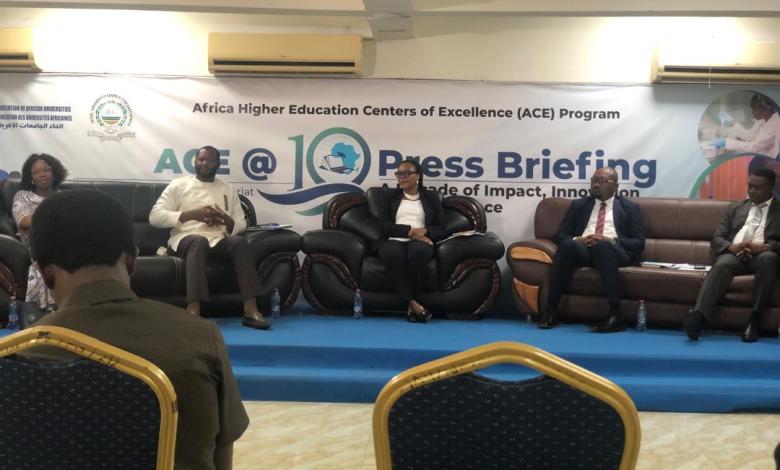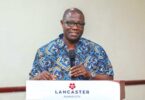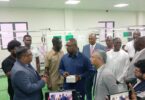Report By: Ishmael Barfi
The Association of African Universities (AAU), in collaboration with the World Bank, Agence Française de Développement (AFD), and the Inter-University Council for East Africa (IUCEA), has celebrated the 10th anniversary of the Africa Centres of Excellence (ACE) Programme with a special press event in Accra.
This milestone event, held at the AAU Secretariat in East Legon, Accra, also sets the stage for the grand anniversary celebration scheduled for April 7-9 at the Labadi Bridge Hotel.
The ACE Programme has played a pivotal role in advancing higher education in Africa by developing specialized research and skills in fields such as science, technology, engineering, mathematics (STEM), agriculture, health, environment, applied social sciences, and education.
Over the past decade, the initiative has supported over 80 centers in more than 50 universities across 20 African countries, enrolling thousands of postgraduate students, with over one-third being women.
Millicent Afriyie Adjei, Communications Lead for the ACE Impact Project at AAU, noted that the celebration was officially launched on October 31, 2023, in Abidjan during the ACE at 10 regional workshops.
Reflecting on this decade-long journey, Adjei emphasized the program’s transformative impact on addressing the demands of higher education and the labor market in Africa.
The upcoming three-day high-level event in April will feature an opening ceremony attended by the Vice President of Ghana and the Vice President of the World Bank.
The event will also showcase inspiring stories from young entrepreneurs, discussions on women in STEM, thematic breakout sessions on innovation and industry collaboration, and a closing ceremony led by the Minister for Education.
Felix Abagale, Centre Director of the West Africa Centre for Water, Irrigation, and Sustainable Agriculture (WACWISA) at the University for Development Studies, highlighted the program’s financial investments and research contributions.
Each center received approximately $6.4 million in funding, leading to significant improvements in research infrastructure and training.
Abagale noted that Ghanaian ACE centers have achieved an impressive minimum performance rate of 97% in meeting their objectives.
WACWISA, for instance, has trained students from over 20 African countries, equipping them with specialized skills in irrigation and drainage engineering.
Research from the program has resulted in groundbreaking innovations, including software tools that help farmers predict optimal planting seasons and remote-controlled irrigation systems.
Similarly, Eric Antwi Ofosu, Centre Director of the Regional Centre for Energy and Environmental Sustainability (RCEES) at the University of Energy and Natural Resources, emphasized the impact of ACE funding on research output.
Before the program’s initiation, the university averaged 57 publications annually. With ACE support, research publications have surged to over 400 per year.
RCEES has also exceeded its initial targets by admitting 114 PhD students and 216 master’s students while training over 456 industry professionals in specialized short courses.
The ACE program has significantly enhanced the international visibility of African universities, with several institutions obtaining international accreditation to ensure that their graduates compete favorably on the global stage.
The initiative has fostered partnerships with industry stakeholders, ensuring that research and innovation lead to practical solutions for Africa’s development challenges.
Despite its successes, the program has faced challenges, including the COVID-19 pandemic and economic hardships that impacted funding and student support.
However, stakeholders remain committed to sustaining and expanding the ACE model beyond its third phase, which concludes in June 2025.
As the 10th-anniversary celebrations approach, there is a strong call for continued investment in higher education, research, and industry partnerships.
The upcoming event promises to be a defining moment in shaping the future of Africa’s education and research landscape.
Source: www.thenewindependentonline.com








